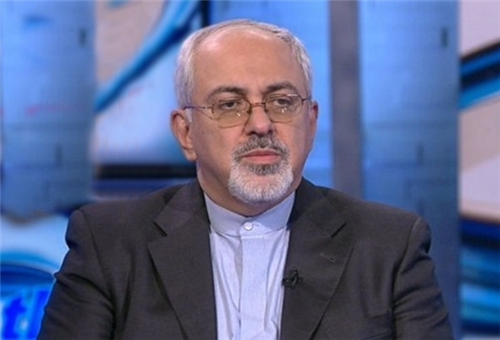FM: Unrelated Issues to Derail Iran-World Powers Nuclear Talks

Iranian Foreign Minister Mohammad Javad Zarif underlined that the next round of the nuclear talks between Iran and the six major world powers would avoid unrelated issues in order to pave the ground for reaching a final agreement.
In an interview on the Iranian television on Saturday, the top Iranian negotiator underscored that the upcoming talks would focus on the technicalities to direct discussions over the Iranian nuclear energy program in a constructive direction.
Zarif said that the talks between the two sides would kick off in the Austrian capital Vienna on Tuesday.
“There are difficult and intensive negotiations ahead,” but as the common goal of the Joint Plan of Action is based on Iran’s continuation of peaceful energy program by mutual “trust building,” the talks should be easy as this is the Islamic Republic’s goal, too, said the Iranian foreign minister.
He also said the talks would be the beginning of a process that would lead to the implementation of the Joint Plan of Action within a year.
The Joint Plan of Action — signed by Iran and the sextet last November — has given the West a chance to remove the Iranian people’s mistrust against the West and particularly the United States, said the Iranian top negotiator.
On Friday, Iranian Deputy Foreign Minister for consular, parliamentary and Iranian expatriates’ affairs Hassan Qashqavi underlined once again that the upcoming talks between Tehran and the Group5+1 (the five permanent UN Security Council members plus Germany) will merely focus on the nuclear issue, reiterating that the two sides won’t discuss any other topic.
“As Foreign Ministry officials have repeatedly stated, the subject of these negotiations is only nuclear,” Qashqavi said.
Qashqavi also noted that Tehran and the six world powers will have “important and breathtaking” negotiations ahead to reach a final agreement for the resolution of the West’s decade-old standoff with Iran over its nuclear energy program.
The Iranian Foreign Ministry on Wednesday strongly rejected US officials’ claim that negotiators of Iran and the G5+1 are due to talk about issues other than the nuclear standoff between Tehran and the West.
“No other issues than Iran’s peaceful nuclear activities has been on the agenda in any previous round of the negotiations with the G5+1 and the next round of the talks won’t include those issues either,” Foreign Ministry Spokeswoman Marziyeh Afkham said.
Her remarks came after the officials in Washington said that they want to discuss the issue of Iran’s ballistic missiles during the upcoming negotiations in Vienna and demand that it be resolved under a final deal.
“Per the Joint Plan of Action, Iran must address the (United Nations) Security Council resolutions related to its nuclear program before a comprehensive resolution can be reached,” Bernadette Meehan, National Security Council Spokesperson, told the Washington Free Beacon.
“Among other things, UN Security Council Resolution 1929 prohibits all activities involving ballistic missiles capable of delivering nuclear weapons, including launches,” Meehan said. “So this issue will need to be addressed during the comprehensive discussions.”
She made the statements after the Iranian Defense Ministry announced on Monday that it has successfully tested two new missiles, including a laser-guided surface-to-surface and air-to-surface missile and a new generation of long-range ballistic missiles carrying Multiple Reentry Vehicle payloads.
Afkham described Iran’s defense program as a main constituent the country’s overall power, and said, “Iran has always announced its readiness to develop defensive interactions and cooperation with the regional states as an important instrument for materializing peace, security, stability and mutual trust.”
Iran and the world powers are due to hold the next round of nuclear talks in Vienna on February 18.
On November 24, Iran and the world powers sealed a six-month Joint Plan of Action to lay the groundwork for the full resolution of the West’s decade-old dispute with Iran over its nuclear energy program. In exchange for Tehran’s confidence-building bid to limit certain aspects of its nuclear activities, the Sextet of world powers agreed to lift some of the existing sanctions against Tehran and continue talks with the country to settle all problems between the two sides.
Then after several rounds of experts talks on how to enforce the agreement, Iran and the six major world powers finalized an agreement on ways to implement the deal.
On January 20, a confidential report by the International Atomic Energy Agency (IAEA) said that Iran has halted its 20-percent enrichment activity under a ground-breaking deal struck with the six world powers in Geneva late in November, paving the way for the easing of some western sanctions against Tehran.







